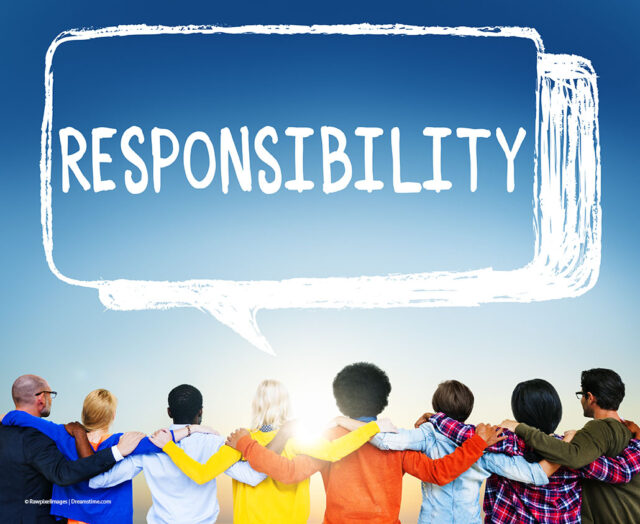
Workplace harassment remains, unfortunately, a rather common issue, despite efforts that have been made throughout the 1990s and onwards to educate the general public. Your place of employment should feel secure and should never be one in which intimidation, inappropriate comments, or threats of physical violence are made.
These infractions on one’s dignity and personhood can come in many forms, and they don’t have to be entirely brazen acts to make you feel diminished and scared. Even the subtlest of “micro-aggressions” can and certainly do have an impact; anyone who tells you otherwise is deeply mistaken.
Your employer is tasked with making everyone in his or her employ feel safe, and the law requires that they instate specific policies and procedures to deal with cases of harassment. If you have any questions or need legal advice regarding your situation, please do not hesitate to contact Employment Law Attorney Jack Nichols in Austin TX. has He has built a reputation as a trusted and effective Austin employment lawyer.
If you are a bit unclear as to what your employer owes you in terms of protection from harassment in the workplace, then read on for more information.
1A Sense of Responsibility

Regardless of which state you might live or work, your employer is mandated to provide a space wherein employees will feel safe from discrimination and sexual harassment. Harassment and racial sensitivity training are typically offered on-site in the hopes that they may help to circumvent any potential issues that may arise.
Your employer is not only required to take these “seminars” or training sessions themselves but according to most laws, would also ask those in his or her employment to take these steps as well.
While the law doesn’t always have specific guidelines for what the legal framework for these training sessions should look like, they are an accepted and well-established practice that many individuals use to address the issue.
2Reporting Incidents of Harassment

Should you or a coworker feel that someone in the team – be they a higher up, or someone of your equal footing in the corporate totem pole – is discriminating against you either through severe pay inequity, aggressive manipulation tactics, or sexual insinuations, then you should take steps to report the matter straight away.
Check the company’s employee handbook for specific guidelines and policies regarding harassment, but also study any procedural requirements they have in place very closely. Make sure that you follow them to a “t”, and put together a compelling portfolio listing your complaints and include documentation – if any, in the form of emails, photos, etc. – of the offending incident(s). If your company has a human resources department then go through them rather than trying to get the attention of your supervisor or executive director.
Through your dealings with HR or your supervisor, you both should be able to come to a clear conclusion as to whether the incident meets the legal definition of harassment. If so, then an investigation will be opened.
3The Investigative Process

You should never wait to see if the abuser in question will stop harassing you. It is critical that an investigation of your complaints begins immediately. According to ECLAW, allowing too much time to pass will make it even more difficult to establish liability as the facts become more muddled and easily manipulated by the opposing party.
The employer is held responsible for not just hearing an employee’s complaint and determining whether or not to open an investigation but to make sure the procedures after run in a smooth and fair manner, with adequate legal representation.
The lawyers, in turn, will have studied the case in-depth and will write their judgments against the legal framework of the state in question. The employer needs to ensure that everyone is compliant with the legal bodies and tampering of any kind does not occur.
4Liability

If the investigation turns up evidence that the employee has in fact been functioning in a hostile work environment, then this means that technically, the employer is liable for the harassment involved. In the case, if the employer does not wish to appeal the motion, he or she will take the necessary steps to not only offer a decent settlement but change the company culture.
This might seem rather idealistic, but in reality, the law does require that a company takes steps to instate further protections once their liability has been determined. It is not enough to provide monetary compensation, a decent severance package, then proceed to sweep the whole matter under the rug. While many employers would love for this to be the case, thankfully, it no longer is.
The employer will need to, for example, draft clear nondiscrimination policies in writing, defining these terms in depth. If they are not already in the employee handbook, then the document should be updated to reflect these changes. This does not only provide extra insurance for future employees but the employer themselves since there will be no guarantee of protection from other lawsuits if they don’t take proper measures to do their homework, as it were.
Employers may also find it helpful to update the procedures for filing complaints regarding discrimination and sexual harassment to reflect the lessons learned in the latest judgment if any. Also, the training seminars on workplace decorum should be conducted more regularly so as to keep the knowledge “fresh,” and for the employer to keep careful track of who attends each session, thus taking the work seriously.
Finally, it is incredibly important for employers to not ever take disciplinary actions against the employee who bravely comes forward with his or her story. This would be a blatant disregard of the employer’s responsibility to their team. Superiors should create a safe environment for employees to flourish as workers. Furthermore, this disregard in and of itself constitutes harassment and is illegal.
While many employers are aware of the fact that they are tasked with creating a discrimination-free zone for their employees, they sadly turn a blind eye to different forms of abuse – sometimes, without even realizing that they are doing so.
The broadening definitions of what constitutes harassment has thankfully made it easier for employees to talk about more diffuse instances wherein they feel targeted and diminished. Now, it is within the employers’ jurisdiction to take these feelings seriously and act upon them in an appropriate manner.







